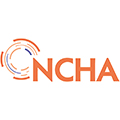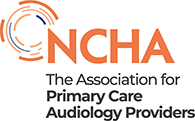26 April 2024
NCHA member update – 26 April
This week:
- NHS to improve access to primary care audiology
- Academics call for positive messaging on dementia and cognition
- Deaf Newcastle fans feel the buzz
- HCPC consults on fee increase
- Tinnitus treatment tickles the tongue
- Ears to the ground
- Health policy
NHS to improve access to primary care audiology
In its latest update on the health system, NHS England has reiterated its support for self-referral to NHS-funded care. This includes audiology services.
More people will be able to refer themselves for key services, such as help with hearing tests, without needing to see a GP as part of the NHS primary care access recovery plan. Read more.
Academics call for positive messaging on dementia and cognition
Two audiology professors have called for a more considered response to the evidence linking hearing loss and dementia.
Kevin Munro and Piers Dawes, from the Manchester Centre for Audiology and Deafness, make the case for more positive messaging in the Ear and Hearing journal. Read more.
Deaf Newcastle fans feel the buzz
Newcastle United's sponsor has teamed up with the RNID to produce touch-sensitive football shirts to enhance the game for Deaf and hard-of-hearing fans.
The shirts use haptic technology to capture sounds around the pitch and convert them into time-synched vibrations, the BBC reported.
The Sela sound shirts, part of an initiative called 'Unsilence the Crowd', were first provided at the Premier League game against Tottenham earlier this month and will be available at all home games.
The HCPC is consulting on a proposed rise of £6.98 to the annual registration fee. If approved, the new annual registration fee would be £123.34.
The last fee rise was in November 2023. The HCPC states that smaller and more regular fee increases consider registrants' cost-of-living pressures as well as allowing the HCPC to address its own financial pressures. The fee consultation will close on 14 June.
Tinnitus treatment tickles the tongue
A musician talks about how she helped her tinnitus with a neuromodulation treatment that delivers mild electrical impulses to the tongue and sounds through headphones.
In an interview with American radio station NPR, Victoria Banks, a singer-songwriter from Nashville, gives her feedback on the Lenire device, designed to reduce the impact of tinnitus by shifting the brain's attention. Banks used the device for an hour a day for 12 weeks.
Lenire, which received FDA approval last year, is not widely available in the UK. You can find more details on the research into its effectiveness on the Tinnitus UK website.
- The NCHA's AGM will take place on 15 May 2024. More details
- The NDCS has launched My NDCS, an information app to support parents of deaf children
- Eliza Barry Callahan tells the story of sudden deafness in her debut novel, The Hearing Test
Almost half of people would pay for better healthcare
A survey commissioned by The Telegraph found that about 40% of respondents would be open to paying to have operations more quickly and get routine check-ups. It also found people are willing to pay more income tax to fund the NHS.
The poll, by Savanta and Chris Hopkins, its political research director, told The Telegraph that public support for the NHS "remains incredibly high" but that these findings suggest that public "perception of the state of the NHS is so bad that they appear to be willing to pay to receive a level of service that used to be more readily available".
Healthcare outside the EU
A new report from the Nuffield Trust shows that global medicine shortages are being felt particularly acutely in the UK. The country's reliance on migration as a source of healthcare is also intensifying.
Principal findings from The future for health after Brexit include:
- There is a new normal of frequent disruption to crucial medicines, which worsened in 2023. Brexit has contributed to difficulties by lowering the value of sterling and removing the UK from EU supply chains.
- An expansion of health and social care workers in England is mainly due to migration from outside the EU.
- Healthcare migration draws heavily on countries placed on the World Health Organization's 'red list', which applies to countries with too few trained clinicians for their needs.
Read the full report.

Press enquiries
Media enquiries should be directed to [email protected] or call 020 7298 5110.
We are happy to put you in touch with our expert policy advisers who can comment on a variety of issues.
You can also follow us on Twitter and LinkedIn.

 Your hearing and aural health
Your hearing and aural health  Commissioners and Policymakers
Commissioners and Policymakers  Member support and guidance
Member support and guidance News and views
News and views
 Hearing map
Hearing map
